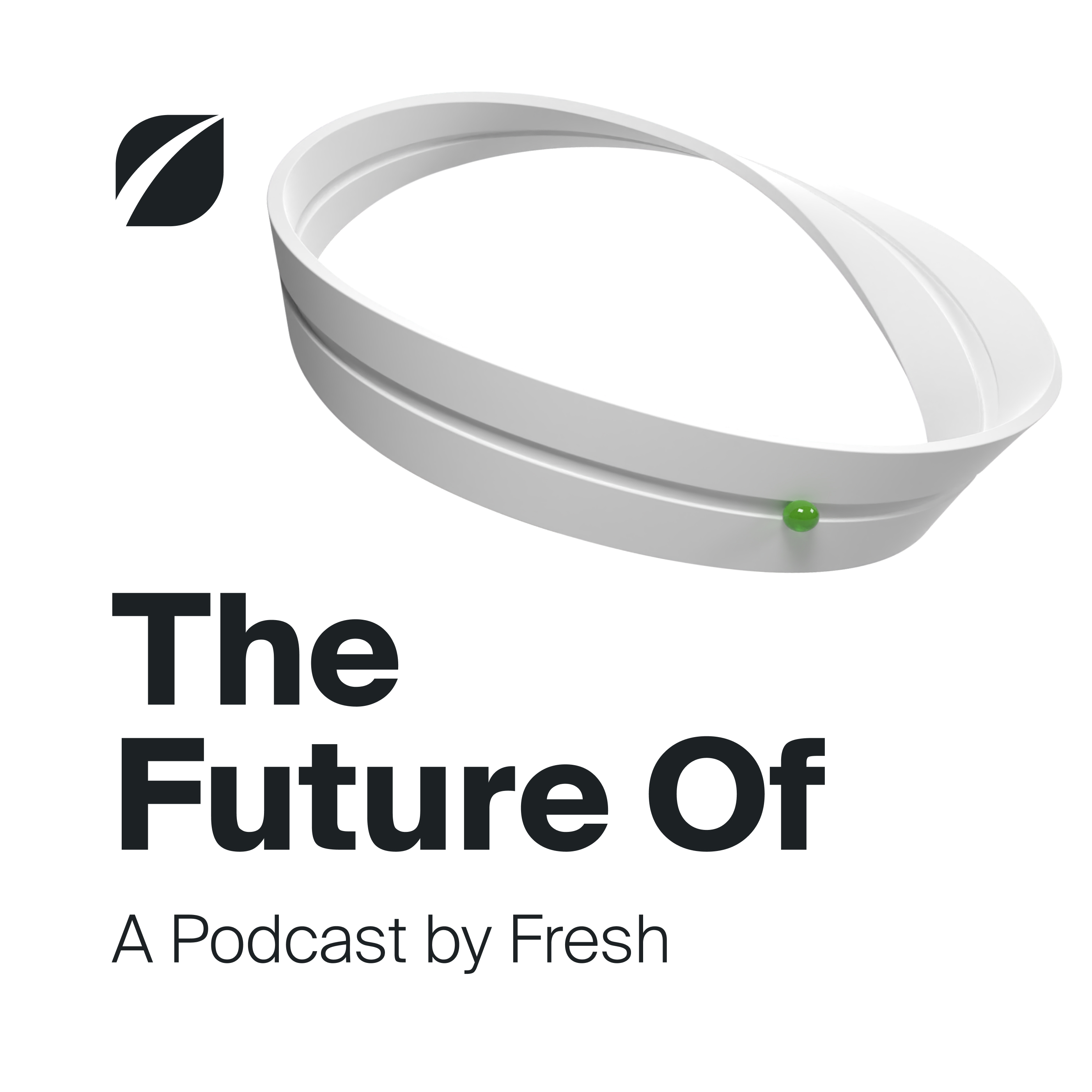The Future Of Aging
March 30, 2023

In this episode of The Future Of, Dr. David Leonardi, Founder of the Leonardi Institute, joins Jeff Dance to discuss the future of aging, including approaches to prevent and reverse age-related diseases, the difference between aging and vitality, and lifestyle habits to slow the aging process.
Dr. David Leonardi, Founder of the Leonardi Institute, joins Jeff Dance to discuss the future of aging, including approaches to prevent and reverse age-related diseases, the difference between aging and vitality, and lifestyle habits to slow the aging process.
They Cover:
- [00:06:56] The scientific aspect of aging involves changes in DNA and the epigenome that cause debility within cells as well as the top causes of death today, which are coronary heart disease and stroke followed by cancer. Coronary disease and cancer account for about sixty-seven percent of mortality.
- [00:11:12] The classic approach to disease was to look at a single one and reverse it after it's already been established. A much better way focuses on altering chemical pathways before people get sick so that they can delay or potentially indefinitely prevent diseases from occurring while maintaining their vitality instead of getting debilitated before death. That is where the scientists are focused right now.
- [00:12:32] When you talk to people about living beyond 100 years old, many immediately picture an ancient person with a three-foot-long beard sitting in a wheelchair in a nursing home. When you slow the aging process, you maintain your healthy lifespan. The scientist's plan for aging is to retain our youth instead of getting debilitated before death so people can enjoy a healthy and active life.
- [00:21:27] An alternative version of recent breakthroughs in reversing aging is the information theory of aging proposed by David Sinclair. According to this theory, aging is not caused by defects in our genes but rather by changes in the epigenome, which is how our genes are wound around each other. One of Sinclair's students, Yingling Liu, experimented with the Yamanaka factors to reverse aging in mice. However, this resulted in the development of cancer. To address this issue, Yingling eliminated one of the Yamanaka genes responsible for cancer and used the other three to transform old cells into pluripotent stem cells, which did not result in cancer.
- [00:34:09] To slow the aging process, Dr. Leonardi suggests a low glycemic diet with minimal sweets and starches, plant-based proteins, and fats. He also encourages people to avoid toxins such as saturated fats and trans fats, limit exposure to air pollution, regularly exercise, use nutritional supplements that affect pathways like AMPK (Adenosine Monophosphate Kinase), intermittent fasting to activate AMPK without caloric restriction, NAD chemical messages out from the nucleus to invigorate mitochondria, autophagy, and mitophagy which involve recycling old proteins into active, healthy compounds for use in cells. Dr. Leonardi emphasizes having clean drinking water by using reverse osmosis filters to filter out toxic minerals like iron, copper, mercury, and cadmium from drinking water.
If you're interested in the future collaborative robots, tune into this episode of "The Future Of", a Podcast by Fresh Consulting.
Full transcript: https://www.freshconsulting.com/insights/podcasts/the-future-of-aging/
Full transcript: https://www.freshconsulting.com/insights/podcasts/the-future-of-aging/
Subscribe here:
- Apple: https://apple.co/3t0hujs
- Spotify: https://spoti.fi/3BLB3ja
- bCast: https://bit.ly/38yNx3l
- RSS: https://bit.ly/3uaCPIB
- Instructions on how to rate and review The Future Of can be found here
Episode resources:
- Dr. Leonardi’s WebMD Profile: https://doctor.webmd.com/doctor/david-leonardi-c81f7a24-6ff6-4875-a3bf-f28290c23309-overview
- Dr. Leonardi’s Book: https://www.amazon.com/Alzheimers-Memory-Science-Prevention-Treatment/dp/1470030470/ref=sr_1_2?qid=1679566282&refinements=p_27%3ADavid+Leonardi+MD&s=books&sr=1-2
- Leonardi Institute: https://leonardiinstitute.com/
About the Show
"The Future Of" is a podcast by Fresh Consulting & hosted by Jeff Dance, where we discuss and learn about the future of different industries, markets, and technology verticals. Together we'll chat with leaders and experts in the field and discuss how we can shape the future human experience.
Previous guests include: Gurdeep Pall of Microsoft, Carolyn Belle of Astroscale, Kane Simms of VUX World, Rogger Kibbe of Samsung Research America, Rob Tiffany of Sustainable Logix, Katrina Stevens of Tech Interactive,
Check out our 3 most downloaded episodes:
The Future of the Metaverse
The Future of Construction
The Future of Generative AI